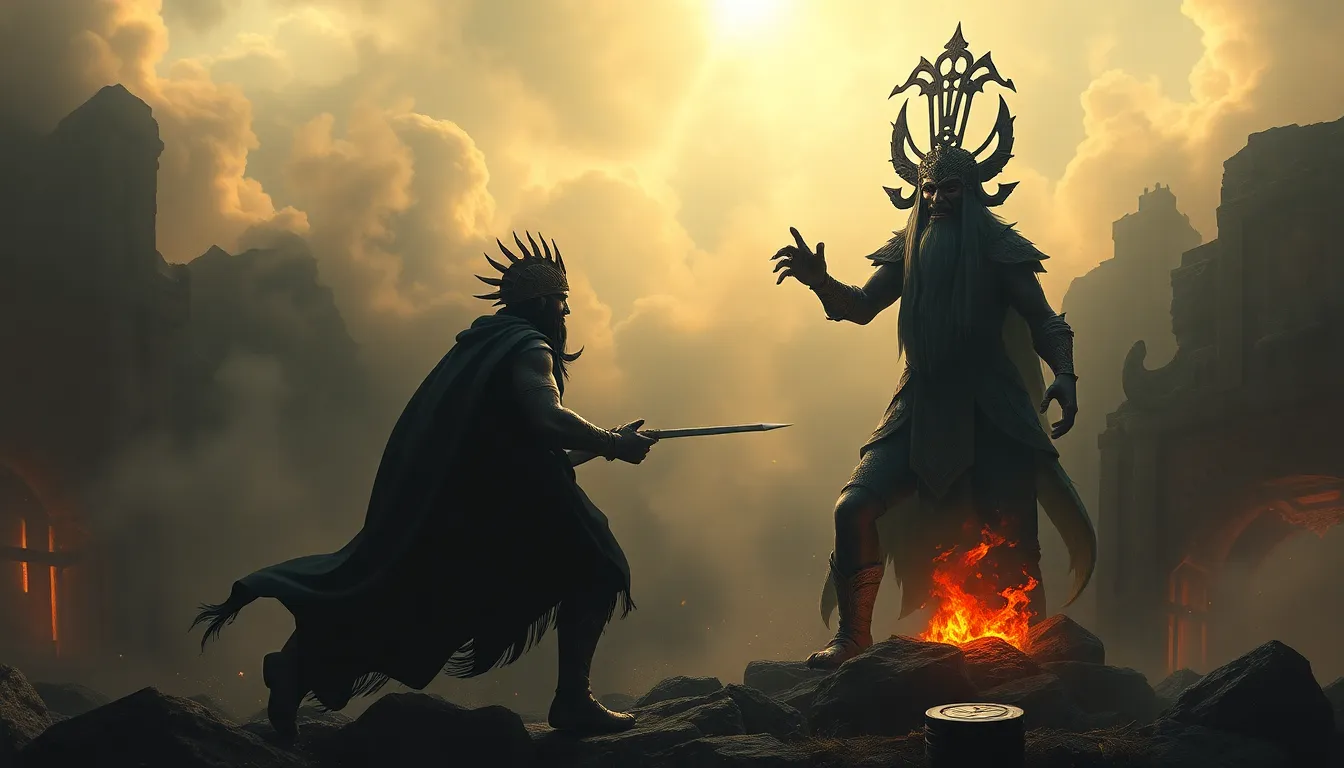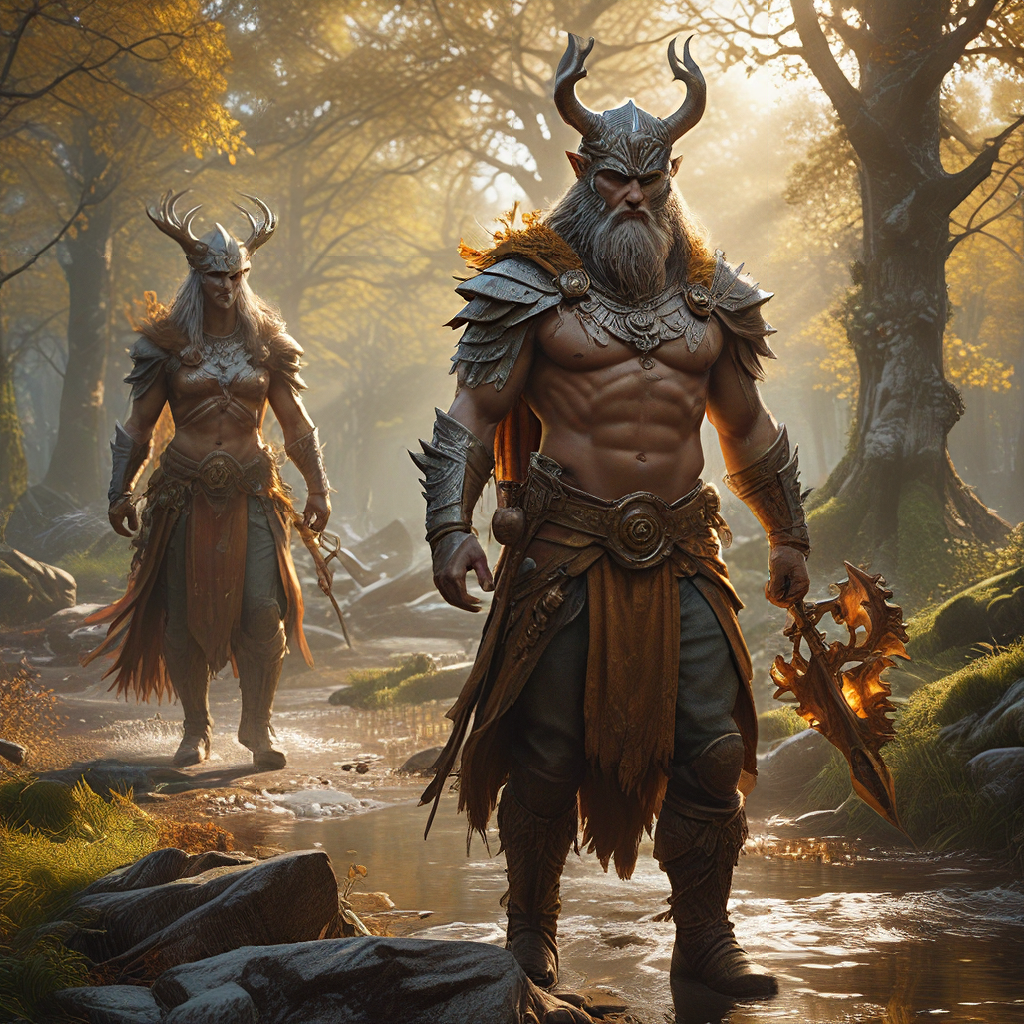Cultural Hero Myths: The Stories That Inspire Courage and Strength
I. Introduction to Cultural Hero Myths
Cultural hero myths are narratives that celebrate extraordinary individuals who embody the values, beliefs, and aspirations of their societies. These stories often highlight the hero’s journey, showcasing their trials, tribulations, and ultimate triumphs. Hero myths serve as powerful tools for teaching moral lessons and inspiring courage and strength in individuals and communities alike.
The importance of hero myths transcends geographical and temporal boundaries, as they exist in various forms across cultures. Whether through oral storytelling, literature, or modern media, these myths play a crucial role in shaping cultural identity and instilling a sense of purpose. By examining the journeys of these cultural heroes, individuals are often encouraged to confront their challenges and embrace their own potential for greatness.
II. Historical Context of Hero Myths
The origins of hero myths can be traced back to ancient civilizations, where they often emerged alongside religious and spiritual beliefs. In these early societies, heroes were seen as demigods or exceptional mortals endowed with unique abilities. They were celebrated for their contributions to their communities, and their stories were passed down through generations.
As cultures evolved, so too did their hero myths. Different societies interpreted the hero’s journey through their own cultural lenses, adapting the archetypes to reflect their values and struggles. Oral tradition played a vital role in this process, as storytellers would embellish and modify tales to resonate with their audiences, ensuring the myths remained relevant over time.
III. Common Themes in Hero Myths
Hero myths often share common themes that resonate deeply with audiences. These include:
- The call to adventure: The hero often receives a challenge or summons that propels them into the unknown.
- Overcoming adversity: Heroes face formidable obstacles and fears, ultimately growing stronger through their experiences.
- Sacrifice and selflessness: Many heroes demonstrate a willingness to put others before themselves, embodying the ideals of altruism and courage.
These themes not only provide a framework for storytelling but also serve to inspire individuals to embrace their own challenges and strive for personal growth.
IV. Prominent Cultural Hero Myths Around the World
Numerous cultural hero myths have emerged across the globe, each with its own unique narrative and lessons. Some prominent examples include:
- Greek Mythology: Hercules, renowned for his incredible strength, undertakes twelve labors, symbolizing the struggle against overwhelming odds.
- Native American Legends: Hiawatha, a legendary figure among the Iroquois, promotes peace and unity among warring tribes.
- African Folklore: Anansi the Spider, a trickster figure, teaches lessons of wisdom and cunning through his clever exploits.
- Asian Mythology: Sun Wukong, the Monkey King from Chinese folklore, embodies rebellion and transformation, challenging authority and societal norms.
V. The Psychological Impact of Hero Myths
The significance of hero myths extends into psychology, where they resonate with archetypal themes that shape human experience. These archetypes, as defined by Carl Jung, represent universal patterns of behavior and personality that exist across cultures. The hero archetype, in particular, symbolizes courage, resilience, and the quest for self-discovery.
Through engagement with hero myths, individuals often find a framework for understanding their own identity and values. The challenges faced by heroes can mirror personal struggles, fostering a sense of connection and inspiring individuals to find their own strength. Moreover, hero myths can foster resilience, encouraging individuals to confront adversity with determination and hope.
VI. Modern Interpretations of Hero Myths
In contemporary society, hero myths continue to evolve and adapt through various forms of literature, film, and media. Modern interpretations often reimagine traditional heroes or create entirely new ones that reflect current societal values and challenges.
The relevance of hero myths remains strong, as they provide a source of inspiration and reflection. Examples of modern heroes inspired by traditional myths include:
- Superheroes in comic books and films, such as Spider-Man and Wonder Woman, who embody the virtues of courage and justice.
- Activists and leaders, like Malala Yousafzai and Nelson Mandela, who confront systemic challenges and inspire change.
- Everyday heroes, including healthcare workers and community leaders, who demonstrate resilience in times of crisis.
VII. The Role of Hero Myths in Social Movements
Hero myths play a significant role in inspiring activism and social change. By embodying ideals of justice, equality, and resilience, cultural heroes motivate individuals to take action and advocate for their beliefs.
Case studies of movements influenced by cultural heroes include:
- The Civil Rights Movement in the United States, which drew inspiration from figures like Martin Luther King Jr. and Rosa Parks.
- The environmental movement, which has seen heroes like Greta Thunberg emerge to advocate for climate action.
- The feminist movement, where figures like Malala Yousafzai serve as symbols of courage in the fight for women’s rights.
Storytelling remains a powerful tool in these movements, uniting communities and fostering a shared sense of purpose.
VIII. Critiques and Challenges of Hero Myths
Despite their positive impact, hero myths are not without critiques and challenges. Some potential issues include:
- Glorification of violence: Certain hero narratives may inadvertently promote conflict and aggression as heroic traits.
- Gender representation: Traditional hero narratives have often favored male heroes, leading to a need for more diverse and inclusive stories.
- Inclusive narratives: The evolution of the hero archetype necessitates a broader representation of experiences and identities in hero myths.
IX. The Future of Cultural Hero Myths
The future of cultural hero myths is likely to be shaped by emerging heroes in a globalized world. As cultures intersect and influence one another, new narratives will arise that reflect contemporary challenges and values.
Technology and social media also play a crucial role in modern myth-making, allowing for the rapid dissemination of stories and the emergence of new heroes. Predictions for how hero myths will evolve include:
- The rise of digital heroes who inspire online communities and movements.
- Increased representation of diverse voices and experiences in hero narratives.
- A focus on sustainability and social justice as central themes in new hero myths.
X. Conclusion: The Enduring Power of Cultural Hero Myths
In summary, cultural hero myths serve as powerful narratives that inspire courage and strength across generations. By exploring the historical context, common themes, and modern interpretations of these myths, we gain insight into their enduring impact on individuals and societies.
As we reflect on the importance of these stories, it becomes clear that hero myths continue to inspire hope, resilience, and a sense of purpose, reminding us of our collective potential to confront challenges and make a difference in the world.



